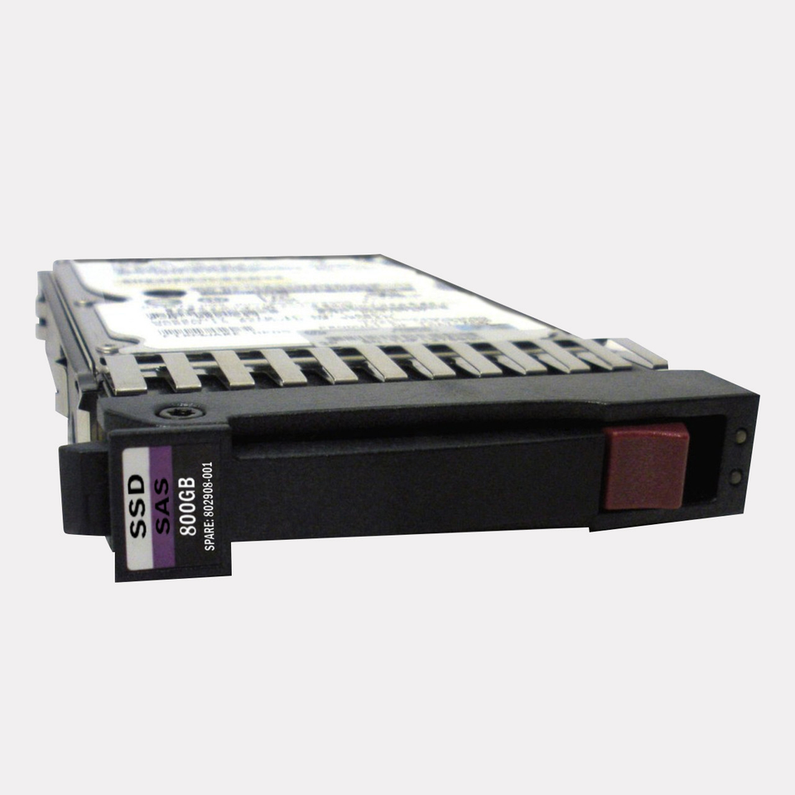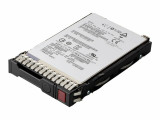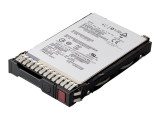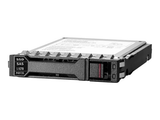Powering Enterprise Performance for Write-Intensive Workloads with HPE 800GB SAS SSD
Overview of the HPE 800GB 2.5-inch SFF High Endurance SAS-12Gbps SSD
The HPE 800GB 2.5-inch Small Form Factor (SFF) High Endurance SAS-12Gbps Standard Carrier Enterprise Performance Write Intensive Solid State Drive (SSD) is a high-performance storage solution designed for Hewlett Packard Enterprise (HPE) ProLiant servers, specifically Generations 4 through 7. This SSD is optimized for write-intensive workloads, offering exceptional speed, reliability, and endurance for enterprise environments. With its robust SAS-12Gbps interface and Multi-Level Cell (MLC) NAND flash memory, it is ideal for mission-critical applications such as databases, virtualization, and high-performance computing (HPC). This article provides a detailed exploration of its specifications, features, benefits, compatibility, and use cases.
Key Features and Benefits
The HPE 800GB SSD is engineered to meet the demands of enterprise data centers, offering a combination of high performance, durability, and advanced management features. Below are its standout attributes:
High Endurance for Write-Intensive Workloads: Rated for 25 Drive Writes Per Day (DWPD), this SSD is built to handle frequent write operations, ensuring longevity in demanding environments. Its lifetime write capacity is substantial, supporting intensive workloads over extended periods.
SAS-12Gbps Interface: The 12Gbps Serial Attached SCSI (SAS) interface provides superior bandwidth compared to SATA drives, delivering faster data transfers and lower latency. This makes it suitable for high-throughput applications.
Hot-Swap Capability: The SSD supports hot-swappable functionality, allowing drive replacement or upgrades without server downtime, ensuring continuous operation in data centers.
Standard Carrier Design: The HPE Standard Carrier provides compatibility with a wide range of ProLiant servers and storage systems, simplifying integration and maintenance.
MLC NAND Flash Memory: Multi-Level Cell technology balances performance, endurance, and cost, making it ideal for enterprise applications requiring high reliability.
Energy Efficiency: Compared to traditional hard disk drives (HDDs), this SSD consumes less power, reducing operational costs and cooling requirements in data centers.
HPE SmartSSD Wear Gauge: Integrated management tools allow administrators to monitor SSD health, wear levels, and lifespan, enabling proactive maintenance to prevent data loss.
Technical Specifications
The HPE 800GB SSD is designed with precise specifications to deliver enterprise-grade performance. Below is a detailed breakdown of its technical attributes:
Hardware Specifications
Capacity: 800 GB
Form Factor: 2.5-inch Small Form Factor (SFF)
Interface: SAS-12Gbps
NAND Flash Type: Multi-Level Cell (MLC)
Height: 15 mm (0.6 inches)
Carrier Type: HPE Standard Carrier
Plug Type: Hot-Pluggable
Logical Blocks: 512 bytes
Performance Metrics
Drive Transfer Rate: 12 Gb/sec (external)
Sequential Read Throughput: Up to 1000 MiB/s
Sequential Write Throughput: Up to 560 MiB/s
Random Read IOPS (4KiB, Q=16): 87,000
Random Write IOPS (4KiB, Q=16): 73,000
Endurance (DWPD): 25 Drive Writes Per Day over 30 days
These specifications highlight the SSD’s ability to deliver high-speed data access and robust performance for write-intensive applications, making it a reliable choice for enterprise workloads.
Compatibility with HPE ProLiant Servers
The HPE 800GB SSD is designed for seamless integration with HPE ProLiant servers from Generations 4 through 7, as well as select HPE storage systems. Its compatibility ensures flexibility for IT administrators managing diverse server environments.
Supported ProLiant Servers
ML Series: ML110 (Gen7), ML350 (Gen5, Gen6, Gen7), ML370 (Gen5, Gen6, Gen7), ML570 (Gen3, Gen4, Gen5)
DL Series: DL360 (Gen5, Gen6, Gen7), DL370 (Gen6), DL380 (Gen5, Gen6, Gen7), DL580 (Gen5, Gen6, Gen7)
BL Series: BL460c (Gen5, Gen6, Gen7), BL680c (Gen5, Gen6, Gen7)
Supported Storage Systems
HPE Storage Arrays: D2700, MSA50, MSA60, MSA70
HPE Storage Systems: X1500 (Gen2), X16000 (Gen2), X1800 (Gen2), X3400 (Gen2), X3800 (Gen2)
To ensure compatibility, IT administrators should verify the SSD’s part number (Option Part Number: 802584-B21, Spare Part Number: 802908-001, Model Number: EO0800JEFPF, Assembly Number: 765290-003) with their specific server or storage array configuration using HPE’s compatibility documentation or support resources.
Ideal Use Cases
The HPE 800GB SSD’s high endurance and performance make it suitable for a variety of enterprise applications. Below are key use cases where this SSD excels:
Transactional Databases
With high random write IOPS and low latency, the SSD is ideal for relational databases (e.g., SQL Server, Oracle) and NoSQL databases (e.g., MongoDB, Cassandra) that require frequent write operations. It ensures efficient handling of real-time transactions in e-commerce, financial systems, and customer relationship management (CRM) platforms.
Virtualization
The SSD supports virtualized environments running VMware vSphere, Microsoft Hyper-V, or other hypervisors. Its high IOPS and low latency enable smooth operation for multiple virtual machines, making it suitable for virtual desktop infrastructure (VDI) and server consolidation.
High-Performance Computing (HPC)
For HPC workloads such as scientific simulations, financial modeling, and AI/ML training, the SSD’s rapid data access and write performance ensure consistent results during compute-intensive tasks.
Logging and Caching
The SSD’s high endurance makes it perfect for logging applications and caching layers in web servers, content delivery networks (CDNs), and big data analytics platforms, where frequent write operations are common.
Deployment and Management Best Practices
To maximize the performance and longevity of the HPE 800GB SSD, IT administrators should follow these best practices:
Pre-Deployment
Verify Compatibility: Confirm the SSD’s compatibility with your server or storage array using HPE’s documentation or by contacting HPE support.
Update Firmware: Ensure the server’s firmware and RAID controllers are up to date to avoid integration issues.
Plan Workload Allocation: Assign write-intensive workloads to the SSD to leverage its high endurance and performance capabilities.
Monitoring and Maintenance
Use HPE iLO Tools: Leverage HPE’s Integrated Lights-Out (iLO) management tools to monitor SSD health, performance, and wear levels. The Standard Carrier’s LED indicators provide real-time status updates.
Regular Backups: Implement regular data backups to protect against unexpected failures, despite the SSD’s high reliability.
Monitor Wear Levels: Use the HPE SmartSSD Wear Gauge to track the SSD’s lifespan and plan replacements proactively.
Procurement
Purchase from Trusted Vendors: Source the SSD from reputable suppliers like StoragePartsDirect or Global One Technology to ensure authenticity and warranty coverage (typically 30 days for refurbished units, up to 3 years for new units).
Check Part Numbers: Verify the correct part numbers to avoid compatibility issues.
Comparison with Other HPE SSDs
To provide context, the HPE 800GB High Endurance SAS-12Gbps SSD can be compared with other HPE SSDs designed for different workloads:
HPE 800GB Mixed Use SAS-12Gbps SSD
Workload Type: Mixed Use (balanced read/write)
Endurance: 3.0 DWPD
Performance: Sequential Read: 1050 MiB/s, Write: 1010 MiB/s; Random Read IOPS: 120,000, Write IOPS: 100,000
Use Case: Suitable for applications with balanced read/write requirements, such as virtualization and big data analytics.
Comparison: The Mixed Use SSD offers higher read performance but lower endurance compared to the Write Intensive SSD, making it less ideal for write-heavy workloads.
HPE 800GB Mainstream Endurance SAS-12Gbps SSD
Workload Type: Mainstream Endurance
Endurance: Lower than Write Intensive (specific DWPD varies)
Performance: Sequential Read: 1000 MiB/s, Write: 570 MiB/s; Random Read IOPS: 87,000, Write IOPS: 58,000
Use Case: Best for applications with moderate write demands, such as general-purpose servers.
Comparison: The Mainstream Endurance SSD is more cost-effective but has lower write performance and endurance, making it unsuitable for intensive write operations.
The HPE 800GB High Endurance SSD stands out for its write-intensive optimization, offering superior endurance and performance for demanding applications.
Conclusion
The HPE 800GB 2.5-inch SFF High Endurance SAS-12Gbps Standard Carrier Enterprise Performance Write Intensive SSD is a powerful storage solution for HPE ProLiant Gen4 to Gen7 servers. Its high endurance, fast SAS-12Gbps interface, and advanced management features make it ideal for write-intensive workloads such as transactional databases, virtualization, HPC, and logging. With robust compatibility, hot-swap capability, and energy efficiency, this SSD is a strategic investment for enterprises seeking to enhance data center performance and reliability. By following best practices for deployment and management, IT administrators can leverage this SSD to meet the demands of modern, data-driven environments.
For businesses looking to upgrade their storage infrastructure, the HPE 800GB SSD delivers exceptional value, combining cutting-edge technology with HPE’s trusted reliability. Verify compatibility and source from reputable vendors to ensure optimal performance and support.
Recent Posts
-
Enterprise Performance Redefined: HPE P37011-B21 1.92TB SAS Mixed Use SSD for ProLiant Gen9 and Gen10 Servers
HPE P37011-B21 1.92TB SAS SSD for ProLiant Gen9 and Gen10 Servers The HPE P37011-B21 1.92TB 2.5inch …Jan 20th 2026 -
Power, Performance, and Precision: HPE 1.92TB SAS SSD for Gen10 Servers
HPE 1.92TB 2.5-inch SFF Digitally Signed Firmware SAS-12Gbps Smart Carrier Mixed Use Value SAS Solid …Jan 19th 2026 -
HPE 1.92TB 2.5" SAS-24Gbps SSD: High-Speed Read Intensive Storage for Gen10 Plus Servers
HPE 1.92TB 2.5inch SFF SAS-24Gbps Read Intensive SSD for ProLiant Gen10 Plus Servers The HPE 1.92TB …Jan 18th 2026




